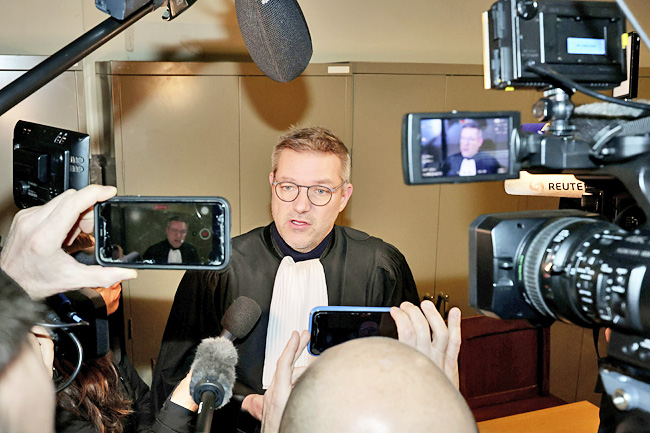MILAN (AP) – The wife and daughter of a former European Union (EU) Parliament member at the centre of a bribery scandal rocking the EU have been freed from house arrest after Belgian prosecutors revoked their arrest warrants, their defence lawyer said on Monday.
Antonio Panzeri’s wife, Maria Dolores Colleoni, and daughter, Silvia Panzeri, had been under house arrest on a Belgian warrant.
Authorities identified Panzeri as a chief suspect in the cash-for-influence scandal linked to alleged influence-peddling by Qatar and Morocco.
Panzeri, in the meantime, has agreed to become an informant in exchange for a lighter sentence, pledging to name names and detail financial arrangements with other countries.
An Italian court in Brescia ruled that both the mother and the daughter could be turned over to Belgian authorities for questioning. But before that could happen, Belgian authorities revoked the arrest warrants.

Instead, Colleoni and her daughter will appear on their own to answer a judge’s questions in Belgium, their lawyer, Angelo Giovanni De Riso, told The Associated Press. No date has been set. The wife and daughter were named in the case after EUR17,000 (USD18,075) were seized in the couple’s home in the Bergamo province northeast of Milan.
Police also seized computers, cellphones, watches and documents. Both have maintained their innocence.
The family’s accountant also has been placed under house arrest. A Milan court is set to decide whether she should be turned over to Belgian authorities.
The corruption scandal has hit the centre-left political group, the Socialist and Democrats, the second-largest in the EU assembly.
Former European Parliament vice president Eva Kaili, was removed from her post after she was taken into custody in early December on charges of corruption, money laundering and membership in a criminal organisation.
Belgian prosecutors suspect that Kaili, along with Panzeri; Kaili’s partner and Panzeri’s former protegee Francesco Georgi; and head of the charity group No Peace Without Justice Niccolo Figa-Talamanca were paid by Qatar and Morocco to influence decision-making at the assembly. Both countries deny the allegations.


